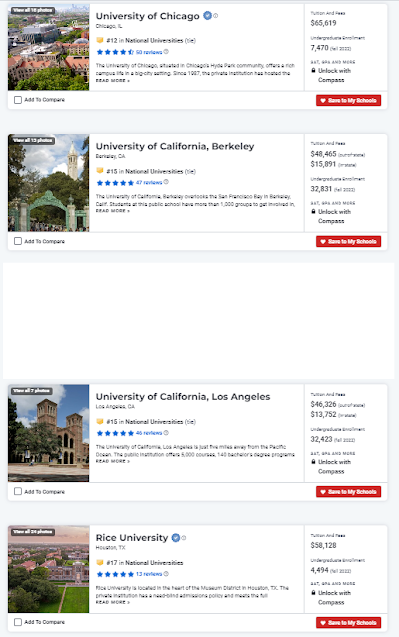Court documents reveal more detail about the internecine fight over the assets of the soon-to-be-defunct Pac-12. The information comes as the Regents will later this week discuss UC-Berkeley's move to the ACC and its financial repercussions. Those repercussions depend in part on who controls the assets of the Pac-12. And it appears that little will be decided in time for their meeting. Jon Wilner of the Mercury News reports:
Pac-12 commissioner George Kliavkoff, a named defendant in the complaint filed against the conference by Oregon State and Washington State, did not attend the hearing Monday in which the plaintiffs’ request for a temporary restraining order was granted. When the defense attorney noted that Kliavkoff is in a “terrible position” in the internecine dispute over the makeup of the governing board, Whitman County (Wash.) Superior Court judge Gary Libey interrupted. “He’s in Montana,” Libey said. Montana, Michigan, Mars — anywhere but the courthouse.
Kliavoff is attempting to stay neutral as the 10 departing universities and the two remaining schools plot their divergent futures and determine control of the conference, according to documents obtained by the Hotline. In a declaration to the court on Sept. 11, the day of the hearing, Kliavkoff stated:
“Neither the Conference nor I have a position with respect to the proper composition of the Pac-12 Board. This is fundamentally a dispute among members. As Commissioner, I will follow lawful directives of the Board pursuant to the Constitution and Bylaws and consistent with my duties in the best interests of the Conference.”
The “dispute among members” is focused on which schools possess voting rights and control of the Pac-12’s assets.
According to the bylaws, any school that gives “notice of withdrawal” prior to Aug. 1, 2024, relinquishes its position on the board of directors.
Washington State and Oregon State have argued the 10 outbound members gave “notice of withdrawal” upon announcing their moves to new leagues — even if they did not submit legal documents to the Pac-12 stating their intentions to leave.
As a result, the Cougars and Beavers believe they are the only remaining members of the board.
The stakes are high. If all 12 university presidents and chancellors retain their board seats, the 10 departing schools could vote to dissolve the conference and split the assets equally.
If WSU and OSU are the sole members of the board, they will control the Pac-12’s assets, including NCAA Tournament revenue worth tens of millions of dollars over time. That money could be used to fund their athletic departments or rebuild the conference after the 10 schools depart next summer.
Where does Kliavkoff stand on the makeup of the board? Is he siding with the 10 or the two? With the schools that have their futures secured or those left behind?
Kliavkoff has not spoken publicly since Aug. 4, Black Friday, when his plans to finalize a media rights deal imploded and five schools withdrew. But his view of the board’s makeup is outlined, in detail, in a letter to Washington State and Oregon State that was included in his court declaration. The letter is dated Sept. 8, two days after WSU president Kirk Schulz and OSU president Jayathi Murthy drew their line in the turf.
The two presidents sent a letter (via email) to Kliavkoff and their peers that highlighted the wording in the bylaws and asked the conference to confirm the 10 outbounds schools had, in fact, given their “notice of withdrawal.” Schulz and Murthy requested an answer within two days, by 10 a.m. on Sept. 8. Lacking a response to their liking, they were prepared to proceed with legal action. Kliavkoff’s response to their request, marked as Exhibit 15 in his declaration, was obtained by the Hotline on Wednesday.
In a letter to WSU and OSU (via email), he disputed the notion that the 10 outbound schools have relinquished their board positions:
“Your suggestion that ten of the Conference’s 12 members have ‘withdrawn’ from the Conference within the meaning of the Bylaws is mistaken. Not one member school has signaled any intention — or actually attempted — to leave Conference play at any time prior to the end of the current fiscal year on July 31, 2024, or to take back and exploit their media rights.
“We simply cannot accept the suggestion that only two members. — Oregon State University (OSU) and Washington State University (WSU) — now have the right to determine by themselves all issues affecting the Conference, and determine the course of all revenue coming into the Conference, to the exclusion of the other ten member schools.”
The wording is important, and it undoubtedly will be discussed in upcoming court hearings intended to determine the makeup of the board.
Kliavkoff writes that the 10 departing schools have not “withdrawn” from the Pac-12 “within the meaning of the bylaws.” But in their letter of Sept. 6, WSU and OSU requested confirmation that the 10 had given “notice of withdrawal” — the exact phrase used in the bylaws. (Italics ours.)
What accounts for the apparent discrepancy between Kliavkoff’s declaration of neutrality — “Neither the Conference nor I have a position with respect to the proper composition of the Pac-12 Board” — and the Sept. 8 letter in which he states the 10 schools have not “withdrawn” and WSU and OSU are “mistaken”? In the letter, he was stating the position of the outgoing presidents, who are contesting the notion that they have withdrawn, according to a source with knowledge of the situation.
(Kliavkoff declined to comment for this story.)
Key point: The bylaws do not define “notice of withdrawal” and whether it must come in writing. Washington president Ana Mari Cauce held a news conference on Aug. 5 in which she discussed UW’s move to the Big Ten. Does that constitute “notice of withdrawal”? The Big 12 released a video on social media welcoming Colorado to the league on July 27. Does that serve as CU’s “notice of withdrawal”? That’s for the attorneys and the court to determine.
WSU and OSU believe the 10 departing schools are conflicted — that their allegiance is now to their new conferences. If allowed to remain on the Pac-12 board, the 10 could vote as a bloc in a manner that harms the two remaining schools, financially or otherwise. After explaining that the 10 have not “withdrawn,” Kliavkoff then acknowledges the nuanced nature of the situation. The letter continues:
“That said, I do have the view that there are decisions (for example, which, if any, schools to invite to join the Conference after July 1, 2024) that should solely be made by OSU and WSU, to the exclusion of our ten other members.”
Then he addresses the middle ground:
“There may also be other decisions that don’t clearly fall within the purview for either all 12 or just the 2 to decide and will be contested. Regardless, it is the Board that should and will determine its governance pursuant to the rules set forth in the Bylaws.”
“My recommendation is that all 12 Presidents and Chancellors should use the opportunity of next week’s Board meeting to see if we can agree on which decisions get decided by all 12, which get decided by just OSU and WSU, and further discuss whether the 12 can agree on a process to consider and decide the contested issues.
“We also plan to distribute, in advance of Wednesday’s Board meeting, a suggested conflict of interest policy that addresses how we might think about the 12 schools agreeing on governance issues to avoid conflict.”
That meeting never happened. Kliavkoff’s letter was deemed unacceptable by WSU and OSU. Moments after the 10 a.m. deadline on Sept. 8, attorneys for the plaintiffs walked into Whitman County Superior Court and filed the complaint. On Monday [of last week], the judge issued the temporary restraining order preventing the Pac-12 presidents and chancellors from holding any meetings until the legal process determines the proper makeup of the board. The sides are expected to schedule a preliminary injunction hearing for later this month.
Source: https://www.mercurynews.com/2023/09/14/pac-12-chaos-is-commissioner-george-kliavkoff-siding-with-the-10-or-the-two-court-records-reveal-his-strategy/.
Note that since the eventual court rulings on this conflict are not going to happen before the Regents meet, making a final decision on what UCLA has to pay to UC-Berkeley would seem to be premature. Both might get some remaining assets from the Pac-12 - or not - depending on court rulings that have yet to occur.





































